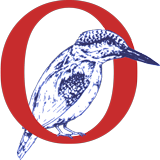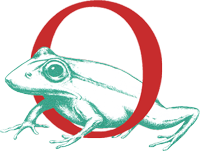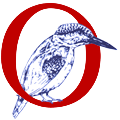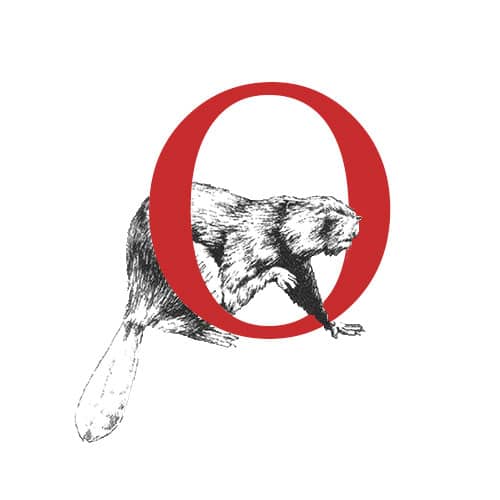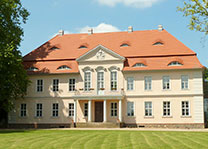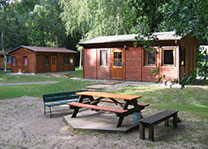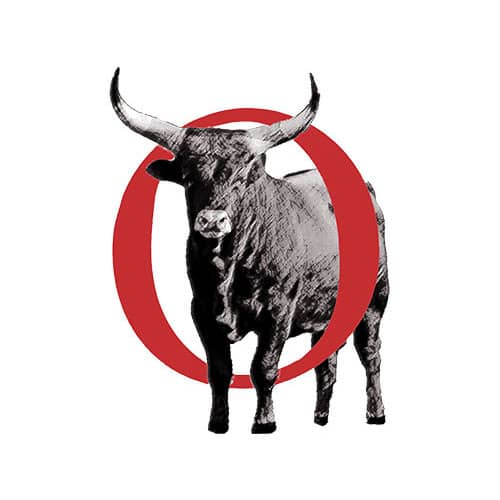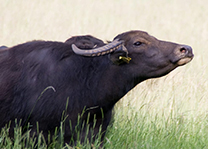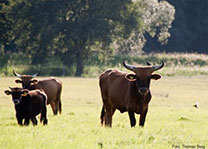Annual press conference on January 12, 2005
In 2004, too, the association was able to carry out its tasks calmly and objectively. The one in the last
In the 19th century, the dispute between local farmers and our association, particularly externally fueled, is a thing of the past.
The clashes, which were very loud and shrill during the election campaign, concerned hunting, the fishing regulations, the designation of total reserves and the amendment of the National Park Act, all topics that do not fall within the area of responsibility of the association, but of the national park administration and the Ministry of Agriculture.
1. Good population development in rare animals, especially birds
The head of the national park administration is publicly pleased about “a slow transformation of the vegetation in the areas of the national park that are not influenced by humans”. The population of some rare birds has developed very positively. However, the head of administration does not mention that this positive development takes place almost exclusively on the areas of the development association, not on the land areas. They are managed today as they were in the past, the nature conservation requirements of the maintenance and development plan are only enforced on the club’s premises. This is where nature can develop. In contrast, the state’s contractual nature conservation resources have also fallen drastically in the Lower Oder Valley in recent years. We are also happy about the positive development in the fields and fields, but we also openly state the causes. They lie exclusively in the property of the association and in the consistent implementation of the maintenance and development plan on this.
2. German-Polish encounter
In 2004, the association deliberately placed a clear emphasis on German-Polish coöperation, in the year Poland joined the European Union. For example, on January 13, 2004, we offered a press conference in Polish for Polish journalists, which was very well received. At the invitation of the responsible district administrator, we attended a German-Polish event in Greifenhagen (Gryfino) on April 24th, 2004 and held the follow-up event on November 26th, 2004 in Criewen with 30 participants. Here, information was given in particular about the protection and use concept of the national park on the German side. The farmers, fishermen, hunters, anglers on the Polish side affected by the International Park were invited, as well as tradespeople, innkeepers and innkeepers. On June 25th, 2004, we invited the Polish mayors of the municipalities near the national park to get to know each other and exchange information at Criewen Castle.
3. Environmental education, research funding and public relations
Since the environmental education of the Internationalpark Unteres Odertal gGmbH is mainly carried out in the wilderness school and the science is based in the Brandenburg Academy of Criewen Castle, public relations in the media remained the core task of the association’s board. The already proven excursion program with experts from the scientific community was again successful this year
Partner organizations offer, on a voluntary basis and free of charge, highly qualified but easily understandable tours on special topics in the Lower Oder Valley. The events were well attended again, with 193 visitors taking part. The program will be continued in 2005 and expanded again.
4. Land acquisition and exchange of land
The association continued the voluntary acquisition of land in 2004 and acquired approx. 28 hectares (as of December 31, 2004). We continue to rely on voluntary land acquisition and reject all coercive and expropriation measures against the will of those affected as part of the company land consolidation procedure. Funds are also available for the voluntary acquisition of land in 2005, especially in the core area of the major nature conservation project. Prospective salespeople are welcome.
The exchange of space is to be intensified in 2005. Although it is actually reserved for the company land consolidation procedure, in individual cases special exchange requests can be taken into account in advance, especially if a comprehensive, final operating concept is achieved with it. The association endeavors to find an operating concept in a direct dialogue with each individual company
secures its livelihood for the company in the long term and still fully takes into account the maintenance and development plan.
5. Landscape maintenance
Year-round grazing with extensive cattle, horse and sheep breeds offers an opportunity for this. Wild animals such as bison and Przewalski’s horse as well as bred ones such as Heck cattle, Taurus cattle or Tarpan, but also Scudden and the rough-wooly Pomeranian sheep are suitable for this. While the sheep are particularly suitable for the dry grass slopes, there is space for cattle and horses in Polder 5/6 and in Lunow / Stolper Polder. This year we will try to work together with the farmers in coöperation with the State Environment Agency
and the MLUV to come to reasonable results.
Even in the 13th year of its existence, the association has a secure financial and administrative foundation and remains determined to continue to do justice to its tasks, which arise in particular from the major nature conservation project of nationwide representative importance for the Federal Republic of Germany.
